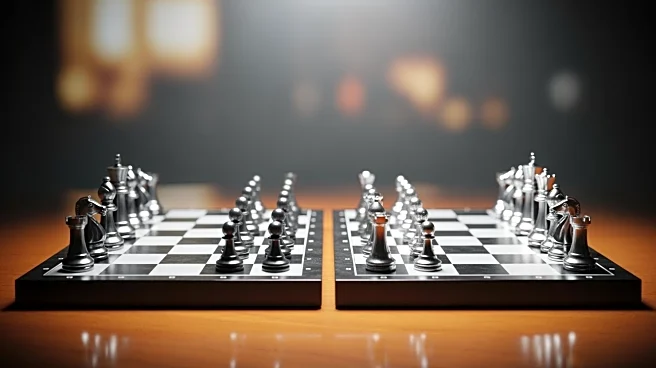What's Happening?
Russia has expressed a preference for President Trump's peace proposal for Ukraine over the plan put forward by European nations. A senior adviser to Russian President Vladimir Putin criticized the European plan,
stating it does not fit Russia's interests. Trump's proposal, which includes concessions such as ceding Ukrainian territory and limiting Kyiv's military capabilities, is seen as more favorable by the Kremlin. The discussions, held in Switzerland, have been described by U.S. Secretary of State Marco Rubio as making major progress, although further work is needed to finalize the proposal. The situation highlights differing approaches to resolving the conflict and the complexities involved in international diplomacy.
Why It's Important?
The preference for President Trump's proposal by Russia could significantly impact the dynamics of the Ukraine conflict and international relations. The U.S. plan, which includes major concessions, may alter the balance of power in the region and affect Ukraine's sovereignty and security. The divergence between U.S. and European approaches underscores potential rifts in Western alliances and could influence future diplomatic strategies. The outcome of these talks may have far-reaching implications for U.S.-Russia relations, European security policies, and the geopolitical landscape in Eastern Europe.
What's Next?
Further negotiations are expected as stakeholders work towards a final agreement. The U.S. may need to address concerns from European allies and Ukraine to ensure a comprehensive and acceptable resolution. The international community will be closely monitoring developments, with potential adjustments to diplomatic strategies and alliances. The situation remains fluid, with ongoing discussions likely to shape future peace efforts and international relations in the region.











